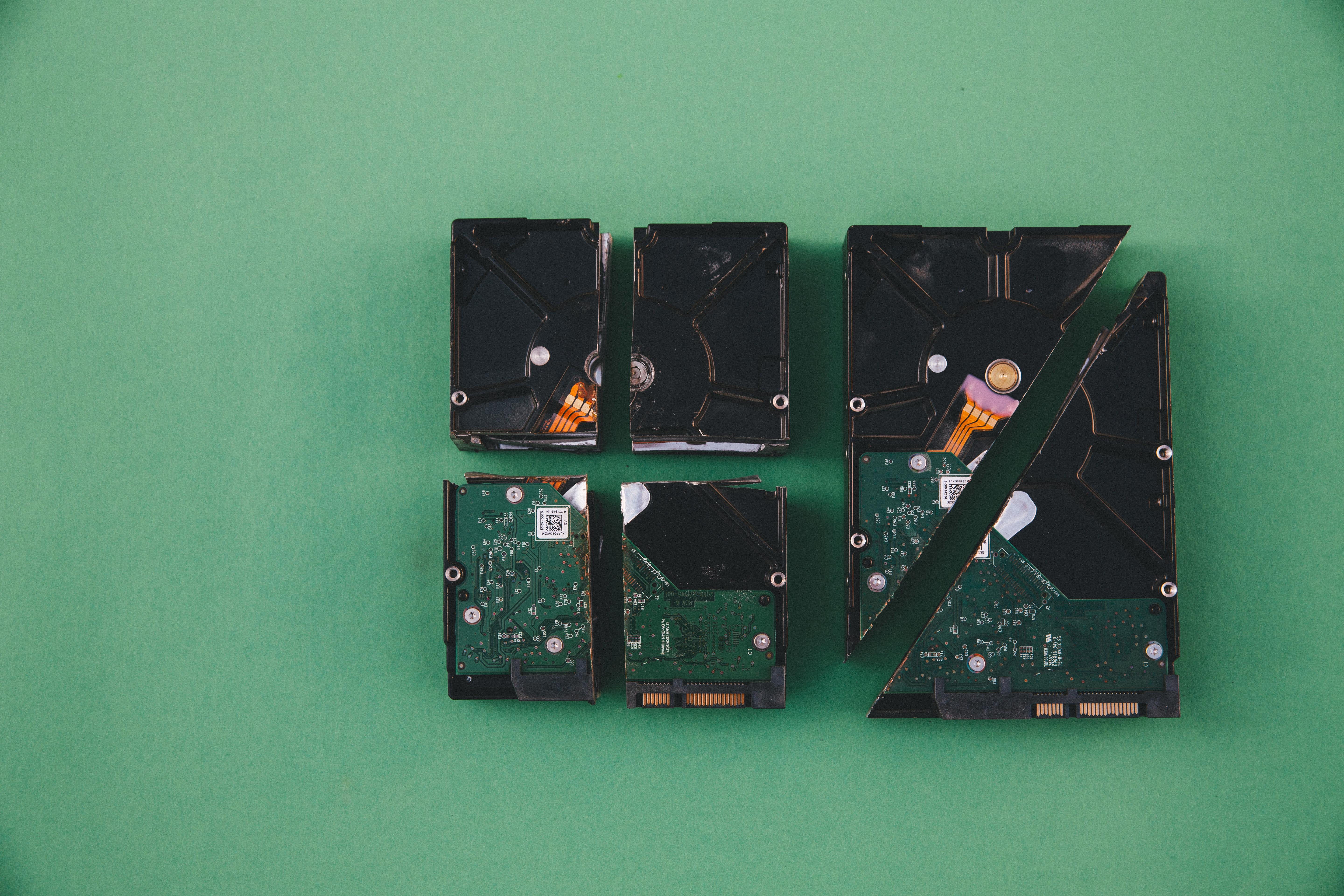Are you tired of seeing that nagging Windows 11 low disk space alert? You’re not alone! Many users find themselves grappling with this frustrating issue, which can slow down your system and hinder your productivity. In this article, we’ll explore simple solutions to help you fix Windows 11 low disk space alert once and for all.
Understanding why your Windows 11 computer keeps crying out for more space is crucial. It could be due to large files, unneeded applications, or even temporary files piling up. Could you imagine how much smoother your PC would run if you could reclaim that lost disk space? That’s exactly what we’ll uncover here! From utilizing built-in tools like Storage Sense to effectively managing your files, we’ll walk you through every step to ensure your computer is running at its best.
So, if you’re ready to stop the frustration and start enjoying a more efficient Windows experience, keep reading! Whether you’re a tech novice or a seasoned pro, our straightforward tips will put you on the path to freeing up valuable disk space. Let’s dive into these expert methods to fix Windows 11 low disk space alert and give your PC the boost it desperately needs. Don’t let low disk space hold you back – discover how to optimize your system today!
10 Proven Strategies to Resolve Windows 11 Low Disk Space Alerts Instantly

Are you getting those pesky low disk space alerts on your Windows 11 system? You’re not alone! Many users face this issue, and it can be frustrating, especially when you need your computer to run smoothly. But don’t worry, we got you covered with 10 proven strategies to resolve Windows 11 low disk space alerts instantly. Let’s dive in!
1. Empty the Recycle Bin
One of the simplest ways to reclaim space is to empty your Recycle Bin. When you delete files, they don’t truly disappear; they just go to this bin. Regularly clearing it can free up a surprising amount of space. Just right-click on the Recycle Bin icon and select “Empty Recycle Bin.”
2. Use Storage Sense
Windows 11 comes with a handy feature called Storage Sense. This feature automatically deletes files you don’t need. To enable it, go to Settings > System > Storage and toggle on Storage Sense. You can customize it to delete files older than a certain number of days!
3. Uninstall Unused Applications
Sometimes, we tend to install applications that we never really use. Uninstalling these can free up quite a bit of space. Go to Settings > Apps > Apps & Features, and review the list. You can click on any app you don’t recognize or use and hit “Uninstall.”
4. Disk Cleanup Tool
Windows 11 has a built-in Disk Cleanup tool that can be really useful. To access it, just type “Disk Cleanup” in the search bar. Select the drive you want to clean, and the tool will present you with a list of files you can delete, such as temporary files or system files.
5. Transfer Files to External Storage
If you have a lot of personal files like photos or videos, consider moving them to an external hard drive or cloud storage. This not only frees up space but also protects your files. Services like Google Drive or Dropbox are great for this.
6. Delete Temporary Files
Temporary files can accumulate quickly. To delete them, go to Settings > System > Storage, and under the “Temporary files” section, you can select which files to remove. Make sure to review what you’re deleting to avoid losing important items.
7. Disable Hibernation
If you don’t use the hibernation feature, consider disabling it. Hibernation saves a snapshot of your system’s state to the disk, which can take up significant space. To disable it, open Command Prompt as an administrator and type “powercfg -h off.”
8. Use OneDrive
Windows 11 has OneDrive integration. You can store files in the cloud and access them when needed. This can significantly reduce the disk space used on your device. Just make sure to sync your files properly.
9. Manage System Restore
System Restore can take up a lot of disk space. You can limit the amount of space it uses or even delete previous restore points. Go to Control Panel > System and Security > System, then click on “System Protection” to manage your settings.
10. Check for Large Files
Sometimes, large files can be hidden deep within folders. Use the search function to find files over a specified size. Just type “size:>1GB” in the search box to locate large files and decide if they can be deleted or moved.
By following these simple solutions, you can fix Windows 11 low disk space alerts effectively. It’s essential to maintain your system to keep it running smoothly. Regularly checking on your disk space, deleting unnecessary files, and utilizing cloud storage can help you avoid those annoying alerts in the future. So, take action today to ensure your Windows 11 experience stays hassle-free!
How to Free Up Disk Space on Windows 11: 7 Simple Tips for Instant Relief

If you find yourself constantly battling the low disk space alert on Windows 11, you are not alone. Many users in New York and beyond experience this frustrating issue. Fortunately, freeing up disk space doesn’t have to be a daunting task. Here’s a list of seven simple tips that can provide instant relief and help you manage your storage effectively.
1. Use Storage Sense
Storage Sense is a built-in feature in Windows 11 that can help you automatically free up space. It delete files in your Recycle Bin or downloads folder after a certain period. To turn it on, go to Settings > System > Storage and toggle on Storage Sense. You can customize how it works too, like setting it to run daily or weekly.
2. Uninstall Unused Applications
Many times, users install applications that they never use. Uninstalling these unused applications can reclaim valuable disk space. To do this, go to Settings > Apps > Apps & features. Here, you can see a list of all installed applications. Click on any app that you no longer need and choose Uninstall. Simple, right?
3. Delete Temporary Files
Temporary files are often the culprit behind low disk space alerts. Windows 11 creates these files to help processes run smoothly but they can pile up over time. To delete them, go to Settings > System > Storage > Temporary files. You will see a list of temporary files that can be removed. Check what you want to delete and click on Remove files.
4. Move Files to the Cloud
Cloud storage is a great way to free up local disk space. Services like OneDrive, Google Drive, or Dropbox allows you to store files online, freeing up space on your device. You can easily move large files like photos and videos to your chosen service. Just make sure you have a backup of important files before moving them.
5. Use External Storage Devices
If you’re frequently getting the low disk space warning, consider investing in an external hard drive or USB flash drive. These devices are great for storing large files and can be connected easily to your Windows 11 device. It’s a simple solution that can save you from the constant worry of disk space alerts.
6. Adjust System Restore Settings
System Restore is a helpful feature, but it can also occupy a lot of space. If you find that it’s taking up too much room, you can adjust its settings. Head to Control Panel > System > System Protection, select your drive, and click Configure. Here you can limit the amount of space System Restore uses.
7. Clean Up Your Downloads Folder
The Downloads folder often accumulates a bunch of files that you might not need anymore. Take a moment to go through it and delete files you don’t require. Sort through PDFs, installers, and other clutter. This little task can make a significant difference in your available space.
By implementing these seven tips, you can easily fix the Windows 11 low disk space alert and enjoy a smoother computing experience. Freeing up disk space not only enhances your system’s performance but also ensures that you can store new files without the constant worry of running out of storage.
With each of these strategies, you not only gain more space but also become more organized. So, don’t let low disk space hold you back. Take action today!
The Ultimate Guide to Fixing Windows 11 Low Disk Space Notifications – Step-by-Step

Are you tired of constantly seeing low disk space notifications on your Windows 11 device? You are not alone! Many users face this issue, and it can be very frustrating. But don’t worry, fixing Windows 11 low disk space alerts isn’t as hard as it seems. In this guide, we will explore simple solutions to help you reclaim your disk space and enjoy a smoother computing experience.
Understanding Low Disk Space Alerts
Low disk space alerts on Windows 11 usually occur when your hard drive is almost full. There are many reasons why this happens. It could be due to large files, unused applications, or even temporary files that pile up over time. When your disk space runs low, it can slow down your system and limit your ability to install new applications or save files.
Step-by-Step Solutions to Fix Windows 11 Low Disk Space Alerts
Here’s a list of practical solutions to tackle the low disk space notifications:
Delete Temporary Files
- Go to Settings > System > Storage.
- Click on “Temporary files.”
- Select files you want to delete, like temporary internet files or recycle bin contents.
- Click the “Remove files” button.
Uninstall Unused Applications
- Navigate to Settings > Apps > Apps & features.
- Scroll through the list and find apps you no longer use.
- Click on the app and select “Uninstall.”
Use Disk Cleanup Tool
- Search for “Disk Cleanup” in the Start menu.
- Choose the drive you want to clean up (usually C:).
- Select file types you want to remove and click “OK.”
Move Files to External Storage
- Consider moving large files like videos and photos to an external hard drive or cloud storage.
- This can free up significant space on your main drive.
Enable Storage Sense
- Go to Settings > System > Storage.
- Toggle on “Storage Sense” to automatically free up space by deleting unnecessary files.
Analyze Disk Space Usage
- Use tools like WinDirStat to visualize disk space usage.
- Identify large files and folders that you might want to delete or move.
Tips to Prevent Low Disk Space Notifications
- Regularly Check Storage: Make it a habit to check your storage settings every few weeks.
- Organize Files: Keep your files organized, so you know what you have and what you can delete.
- Limit Downloads: Be cautious when downloading files, and only keep what you truly need.
- Backup Important Data: Regularly backup data to avoid losing important files when you need to free up space.
Final Thoughts
Fixing Windows 11 low disk space alerts doesn’t have to be a headache. By following these simple steps, you can clear up space and prevent those annoying notifications from popping up. Remember to regularly maintain your system and keep an eye on your storage to ensure a seamless experience. If you are looking for digital licenses or software to enhance your computing, check out our store for great deals. Taking control of your disk space will not only improve your system performance but also give you peace of mind.
Are You Seeing Low Disk Space Alerts on Windows 11? Uncover Top 5 Quick Fixes!

Are you tired of seeing those annoying low disk space alerts on your Windows 11? You are not alone, many users face this issue, and it can become really frustrating. When your storage space is running low, it affects your computer’s performance and makes you worry about losing important files. Luckily, there are some quick fixes that can help you regain that precious disk space. Let’s dive into the top 5 fixes to solve this problem!
1. Delete Unused Apps and Programs
One of the easiest ways to free up space is by uninstalling apps that you don’t use anymore. Many times, people download programs and forget about them. To check what’s eating up your space:
- Go to Settings
- Click on Apps
- Choose Apps & features
From here, you can see a list of installed apps. Uninstall the ones you no longer need by clicking on them and selecting Uninstall. This can clear a significant amount of space!
2. Use Storage Sense
Windows 11 comes with a built-in feature called Storage Sense, which can automatically free up space for you. It can delete temporary files and manage your content more effectively. To enable it:
- Go to Settings
- Click on System
- Select Storage
Here, you’ll see a toggle for Storage Sense. Turn it on and configure how often you want it to clean up. You can set it to clean up files every day, week, or month.
3. Clean Up Temporary Files
Temporary files can build up over time, taking up valuable space. You can reclaim space quickly by using the Disk Cleanup tool. Here’s how:
- Press Windows + S and type Disk Cleanup
- Select the drive you want to clean (usually C:)
- Check the boxes for Temporary files, Recycle Bin, and any other categories you want to clear
After you select the files, click OK to delete them. It’s a simple, yet effective way to increase your disk space.
4. Move Files to External Storage
If you have files that you don’t access all the time, consider moving them to an external hard drive or cloud storage. This not only frees space but also keeps your important data safe. Popular cloud services include Google Drive, Dropbox, and OneDrive. Just upload your files there and delete them from your local drive.
5. Disable Hibernation
Hibernation can consume a lot of disk space because it saves the current state of your system. If you rarely use this feature, you might want to disable it. To do this:
- Open Command Prompt as Admin (right-click on Start button)
- Type
powercfg -h offand press Enter
This command disables hibernation and deletes the hiberfil.sys file, which can free up several gigabytes.
Summary of Quick Fixes
- Uninstall unused apps to reclaim space quickly.
- Enable Storage Sense for automatic cleanups.
- Run Disk Cleanup to delete temporary files.
- Move files to external storage or clouds.
- Disable hibernation to free up large amounts of space.
So, if you are seeing low disk space alerts on Windows 11, don’t panic! These fixes can help you reclaim lost space and improve your computer’s performance. By taking some simple steps, you will be able to enjoy a smoother experience without those bothersome alerts. Use these strategies today and enjoy a clutter-free digital life!
Why Is Windows 11 Warning You About Low Disk Space? 6 Key Reasons and Fixes

Are you getting those annoying low disk space alerts on your Windows 11? Many users in New York and beyond have been seeing this warning pop up, and it can get pretty frustrating. But why is Windows 11 warning you about low disk space? There’s a few key reasons for this, and we’ll also look at how to fix it. Knowing what’s taking up space on your hard drive is crucial for smooth operation of your computer.
Why Is Windows 11 Warning You About Low Disk Space?
Temporary Files Piling Up: Windows generates temporary files for various tasks, like updates or installations. Over time, these can accumulate and use a significant amount of space. You can check this by going to Settings > System > Storage.
Large Applications and Games: If you’ve installed applications or games that take up a lot of space, this might be the main cause of your disk space issues. Games, especially, can be quite large. Consider uninstalling those you no longer play.
Old Files and Downloads: Sometimes, users forget about the downloads folder or old documents. You might have files from years ago sitting there, taking up space. Regularly cleaning out these folders is a good practice.
System Restore Points: Windows creates restore points to help you revert your system to a previous state. However, these can take a lot of space, especially if you have a lot of them saved. You can manage these by searching for “System Properties” and clicking on “System Protection.”
Windows Updates: Updates can also consume disk space. They usually store backup files in case the update needs to be reversed. These backup files can eat up space quickly. Delete old update files periodically by using Disk Cleanup.
Malware or Unwanted Programs: Sometimes, malware can unexpectedly fill up your disk. Running a reliable antivirus scan can help identify and remove any malicious files. Always keep your antivirus software updated to prevent issues.
Fix Windows 11 Low Disk Space Alert: Discover Simple Solutions
Here’s a simple list of ways to free up disk space on your Windows 11:
Use Disk Cleanup Tool: Search for “Disk Cleanup” in the start menu. This tool can help delete temporary files, system files, and more.
Uninstall Unused Programs: Go to Settings > Apps > Apps & features. Here, you can see installed applications and remove those that you don’t need.
Delete Large Files: Use the Storage settings to find large files. You might be surprised by what’s taking up space.
Clear Browser Cache: If you use browsers like Chrome or Firefox, their caches can build up quickly. Clear them out regularly to save space.
Move Files to External Storage: If you have large files like videos or photos, consider moving them to an external hard drive. This frees up valuable space on your main drive.
Cloud Storage Options: Using services like Google Drive or OneDrive can also help in offloading files from your local storage.
If you implement these fixes, you should notice a change in your disk space alert frequency. It’s important to keep an eye on what’s eating up your storage, and keep everything organized.
By taking proactive steps, you can enjoy a smoother experience with Windows 11 and avoid those pesky low disk space warnings. Regular maintenance is key to ensuring your system runs efficiently.
Conclusion
In summary, addressing the low disk space alert in Windows 11 is essential for maintaining optimal system performance and user experience. We explored various strategies to reclaim disk space, such as utilizing the built-in Storage Sense feature, uninstalling unnecessary applications, deleting temporary files, and leveraging cloud storage solutions. Additionally, we discussed the importance of regularly monitoring your disk usage and considering options like external drives or upgrading your internal storage for long-term relief. By implementing these solutions, you can effectively mitigate the low disk space warning and enhance your device’s functionality. Remember, a well-maintained system not only runs smoother but also prolongs the lifespan of your hardware. Don’t wait until the alert becomes a critical issue—take proactive steps today to optimize your storage and enjoy a more efficient computing experience. Start decluttering your digital space now!

